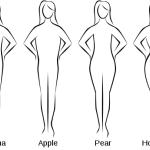Is breakfast really the most important meal of the day, and if you habitually skip it are you dooming yourself to obesity and worse?
obesity
In a nod to science, Newsweek reported that there might be genetic underpinnings to obesity.
Apparently little attention has been paid to the risk of knee dislocation and vascular damage in obese and morbidly obese people, according to Dr. Christopher T. Born from the Warren Alpert Medical School of Brown University and colleagues.
College campuses are dictating what costumes are offensive. Social media is deluged with healthy Halloween options, like dispensing kale chips instead of the real good stuff.
It’s a persistent question — does it make any difference how one’s meals are distributed during the day? Research has suggested that, given the same caloric intake, when one eats really doesn’t affect one’s body weight.
In the latest report on the topic, the National Center for Health Statistics (NCHS) paints a rather depressing picture of the status of the nation's obesity prevalence.
For the extremely obese (i.e., those with a BMI over 40), the most effective means of losing weight and keeping it off is bariatric surgery — as we have di
Being tan has a slimming effect and makes people look and feel great. Well, turning fat brown can actually make people thin.
It's pretty common knowledge that obesity increases the chance that a woman will develop breast cancer, and how her excess adiposity is distributed on her body can be a clue to her risk.
OK, sleep is important — we get that. None of us functions very well when seriously sleep-deprived. But other than that, what health implications might there be if we're not getting adequate zzzz's?











